Celebrating 15 Years of Honours
We are celebrating 15 years of Honours programmes that have connected educators, coordinators, teachers, and students across Dutch Honours networks.
Behind the scenes, dedicated coordinators and program directors ensure these programs run smoothly. What motivates them, and what does the Honours programme mean to them? Here are reflections from five key individuals on this remarkable journey.
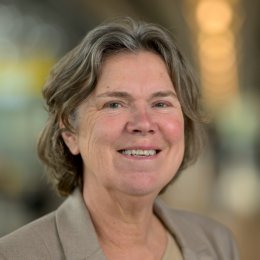
Driving forces
Honours programmes are designed to pique the broad, intellectual interest and curiosity of outstanding students. This is why honours education offers more freedom than regular educational programmes, although it’s definitely not free of obligation. On the contrary: we expect students to put all of their talents, and the energy we invest in developing those, towards solving societal challenges. We also expect them to work together to come up with creative, innovative and interdisciplinary ideas. When I look around and see where alumni of our own honours programmes ended up, as driving forces and connectors, I can’t help but feel proud that our approach is working.
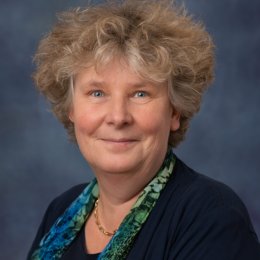
Outside the box
For me, it is very important to prepare young academics to contribute to solutions of actual societal challenges. By having interdisciplinary knowledge, extended skills and societal engagement, students will be able to work on ‘outside the box’ solutions. By learning, educating and organising ‘outside the box’, the Honours Academy of the Leiden University builds on transdisciplinary and innovative educational programmes for scholars, bachelor students and master students. We are proud to work together with more than 250 staff members of all faculties of the University, and many societal partners.
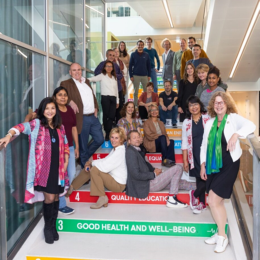
Explore talents
Being the proud director of the honours Bachelor of Business Administration in Global Project and Change Management, I wish every student an honours educational experience. Fifteen years of honours education have strongly influenced the innovation of Dutch higher education. It has paved the way for the rise of multi- disciplinary collaboration, the value of authentic assignments, for the importance of personal learning journeys as well as the strength of learning communities. Honours education gives young people the opportunity to explore their talents and strengths, and to do good for society and planet. In other words, honours education is education that matters.
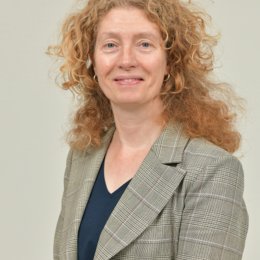
The extra bit
As a coordinator for the Master Research Honours programme, for me, honours means supporting every year a group of students in their journey to develop them- selves as future and engaged researchers. By offering a diverse programme with a variety of workshops and trainings as well as individual coaching on skills and knowl- edge they nowadays need as researcher, I see the students change, grow and become more self-aware. In the group and as a group they learn from other experiences and from each other. Both the efforts from the team of teachers, their supervisors, as well as their own input contribute to deepened insights in the life of a researcher. Honours prepares them for a role as researcher that is more varied and sometimes more challenging than ever. Empowering the students for continuous development is most rewarding. It is the extra bit that honours offers.
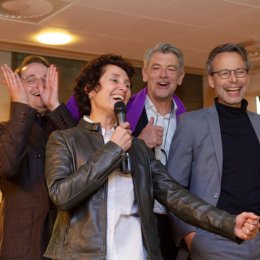
Topical and challenging
To me, honours means creating the best possible learning environment for students who have the ability, the desire and the courage to do more. With these programmes, we meet the educational needs of students who are looking for a safe way to think outside the box, thereby empowering them to continue exploring and developing their talents. In addition, honours mostly takes place outside the curriculum, which gives this form of education the flexibility and pace it needs to respond to current themes, trends and developments. This makes honours topical and challenging, both for the students and teachers involved. Finally, honours means a valuable community for students and teachers. It’s a respectful and stimulating environment where everyone focuses on development and fulfilment. To be part of that, and contribute to that, is something I hold very dear as a coordinator.